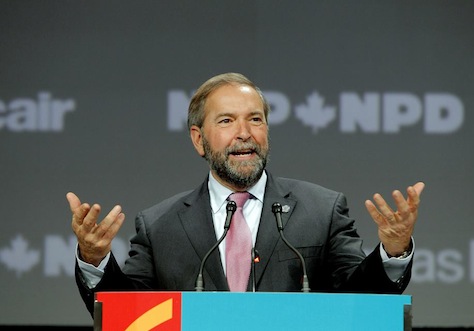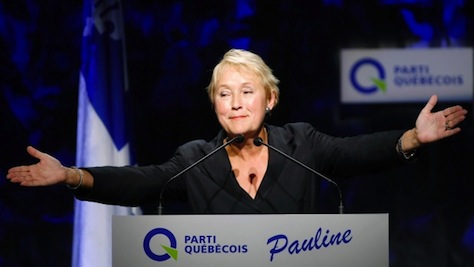What were Québec’s voters looking for in its provincial election?![]()
![]()
Obviously not the hard-core separatist agenda that premier Pauline Marois did such a poor job of concealing from voters. As soon as a potential referendum on independence became the central issue of the election, Marois’s Parti québécois (PQ) immediately lost its polling lead.
Obviously not the market-friendly approach to government that François Legault champions. He’s now failed twice to convince Québec’s voters to elect the Coalition avenir Québec (CAQ) into government.
Despite its massive win in today’s election, it’s not obvious that the Québec electorate was so incredibly excited about returning the Parti libéral du Québec (Liberal Party, or PLQ) to power just 18 months in opposition. The Charbonneau Commission, appointed during the previous Liberal government of premier Jean Charest, hasn’t even finished its inquiry into allegations of corruption related to the awarding of (mostly Liberal) government contracts.
Imagine, instead, if Québec voters had a fourth option — a party with the social democratic credibility that the CAQ lacks but without the PQ’s separatist agenda and without the baggage of last decade’s Liberal governments?
That’s right — a province-level party of the New Democratic Party, or the Nouveau Parti démocratique du Québec (NPDQ).
Québec’s 2014 provincial elections would have been the perfect platform for NDP leader Thomas Mulcair to build a truly competitive provincial vehicle within Québec, and it’s a goal that Mulcair outlined after he won the NDP leadership in 2012 and again late last year: Continue reading Mulcair loses chance to solidify NDP gains in Québec

